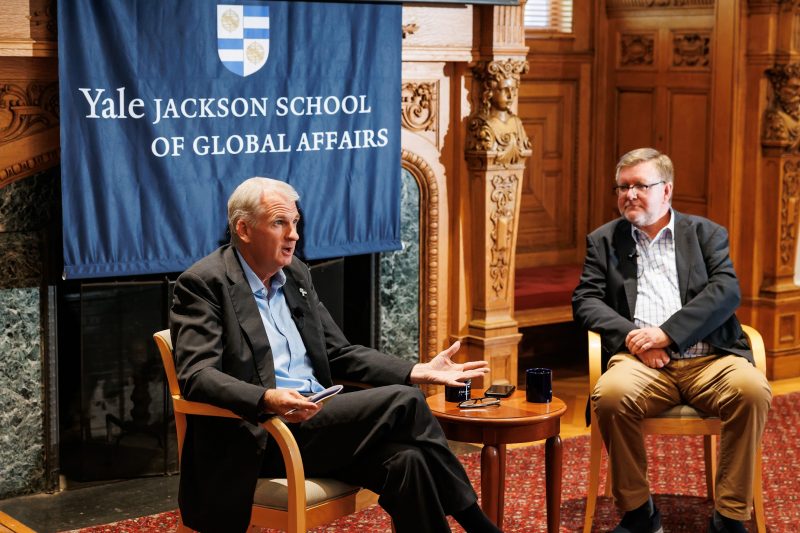On September 28, the Jackson School hosted the discussion forum, “The War in Ukraine: Where do we go from here?” featuring Timothy Snyder, the Richard C. Levin Professor of History at Yale University, and Serhii Plokhii, the Mykhailo S. Hrushevs’kyi Professor of Ukrainian History at Harvard University.
The conversation was moderated by Arne Westad, the Elihu Professor of History and Global Affairs, who opened the discussion by asking Plokhii and Snyder to evaluate the situation in Ukraine today.
“Supporting Ukraine as a policy since February has done much more to influence the course of events in the Russian Federation than any American policy towards the Russian Federation since the end of the Cold War,” Snyder said.
Snyder also underscored that Ukraine has given hope to democracies worldwide and abated China’s threat to Taiwan. “The fact that Ukraine has resisted Russia so effectively has pushed the scenario out by at least a decade,” he said.
Shifting the conversation to the historical and cultural dimensions of the conflict, Snyder argued that Ukraine’s forceful resistance has demonstrated its unique national identity and subverted Putin’s justification for the war.
Plokhii elaborated on the war’s historical undercurrents and implications for Russia, explaining that Ukraine’s resistance has damaged Russia’s status as a global power and Putin’s narrative of Ukraine’s illegitimacy. “That narrative had been crashed completely on the battlefield of this war in Ukraine,” Plokhi said. “This war certainly kills hope for Russia to become another major center in the multipolar world.”
“The Putin regime will come to an end,” Snyder predicted, drawing parallels between Putin and tyranny in Shakespeare and Plato. “It’s very important to remember that they all come to an end, and often they come to an end because of tragic mistakes they make when they’ve stuck around too long.”
